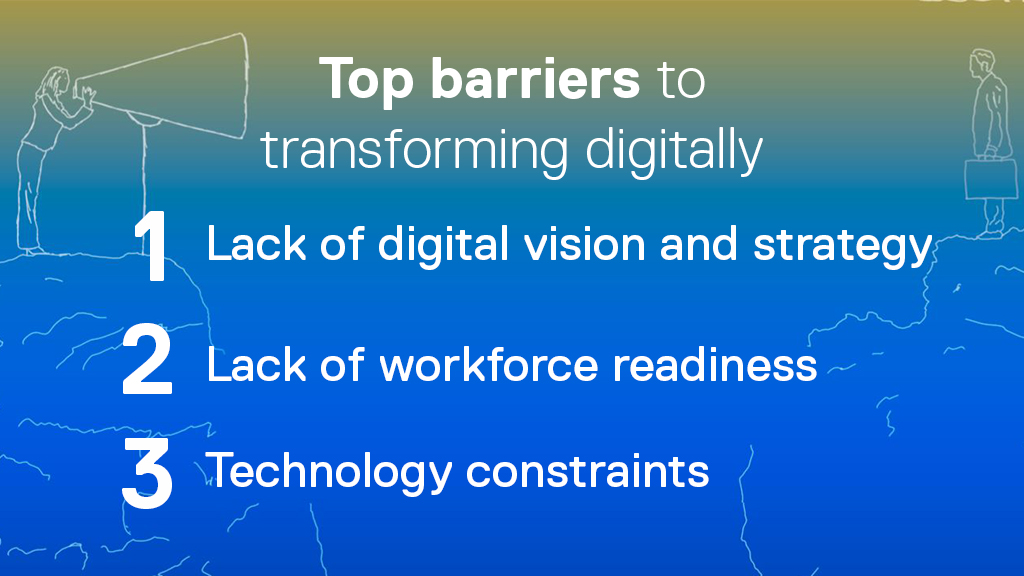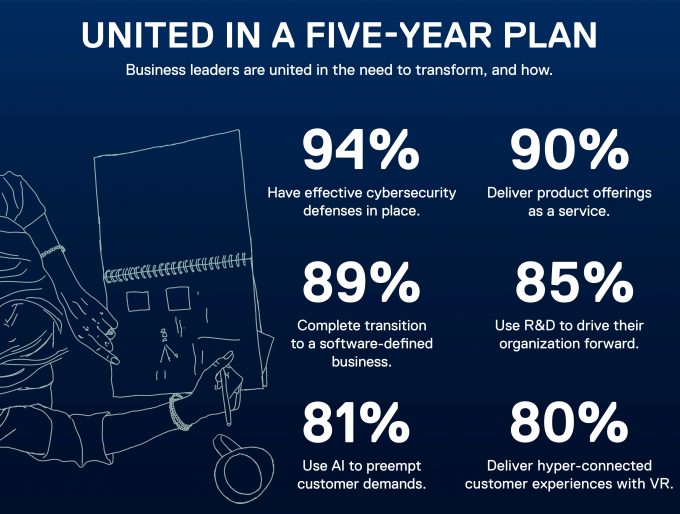By Jeremy Burton, former Chief Marketing Officer, Dell Technologies
Last year Dell Technologies worked with the Institute for the Future to forecast the impact of emerging technologies such as IoT, Augmented and Virtual Reality, and Artificial Intelligence on the way we live, work and conduct business. IFTF concluded we’re entering the next era of human-machine partnership – one where our dependence on machines will be far deeper and more immersive than before. The way we work will change, and so will the way we learn. Not surprisingly, the Institute foresaw wide-ranging implications for those businesses that would be the primary drivers of getting us from here to there.
But What Do the Businesses Themselves Think?
It’s a good question – and one we sought to answer. So, we commissioned research with 3,800 business leaders from around the world to find out what they think the next 10-15 years have in store.
As it turns out, leaders agree we’re entering a new era of partnership between man and machine – in fact 82 percent believe humans and machines will work increasingly together as an interwoven team. But, those 3,800 leaders are split on what the future means for them, their business and the world at large.
For instance, 50 percent of business leaders think automated systems will free up their time. Of course, that means the other 50 percent don’t see it that way. Similarly, 49 percent forecast they’ll be more productive by collaborating more, which means 51 percent see things differently.
Leaders are also torn by whether the future represents an opportunity or a threat. This is made clear by the 48 percent who say the more we depend upon technology, the more we’ll have to lose in the event of a cyber-attack. What does that leave? 52 percent who aren’t concerned. Along those same lines, respondents are divided by the measures businesses will need to take to mitigate these risks. 50 percent of business leaders are calling for clear protocols in the event that autonomous machines fail. The other half apparently doesn’t see the need.
Not only are businesses torn by opposing views of the future, they also feel beset by barriers to operating as a successful digital business. 93 percent are battling some form of barrier to becoming a successful digital business in 2030 and beyond.

However, given these challenges, businesses are united in the need to transform and are actually very optimistic about being able to make it happen. In fact, the vast majority of businesses believe they’ll meet ambitious digital milestones as evidenced by 90 percent of respondents who believe that within 5 years they’ll be able to deliver their product as a service.

All in all, I’m encouraged by how far and wide the imperative to transform has spread, but the dual outlook surprises me. Pretty much everyone knows the maxim: “united we stand, divided we fall”. In my mind, there is no argument. We’re in an era of monumental change. Businesses can either grasp the mantle and transform to play a defining role in the future… or be left behind.
Check-out the resources below, and think about the sort of company you’d want to be a part of in 2030.
Resources: